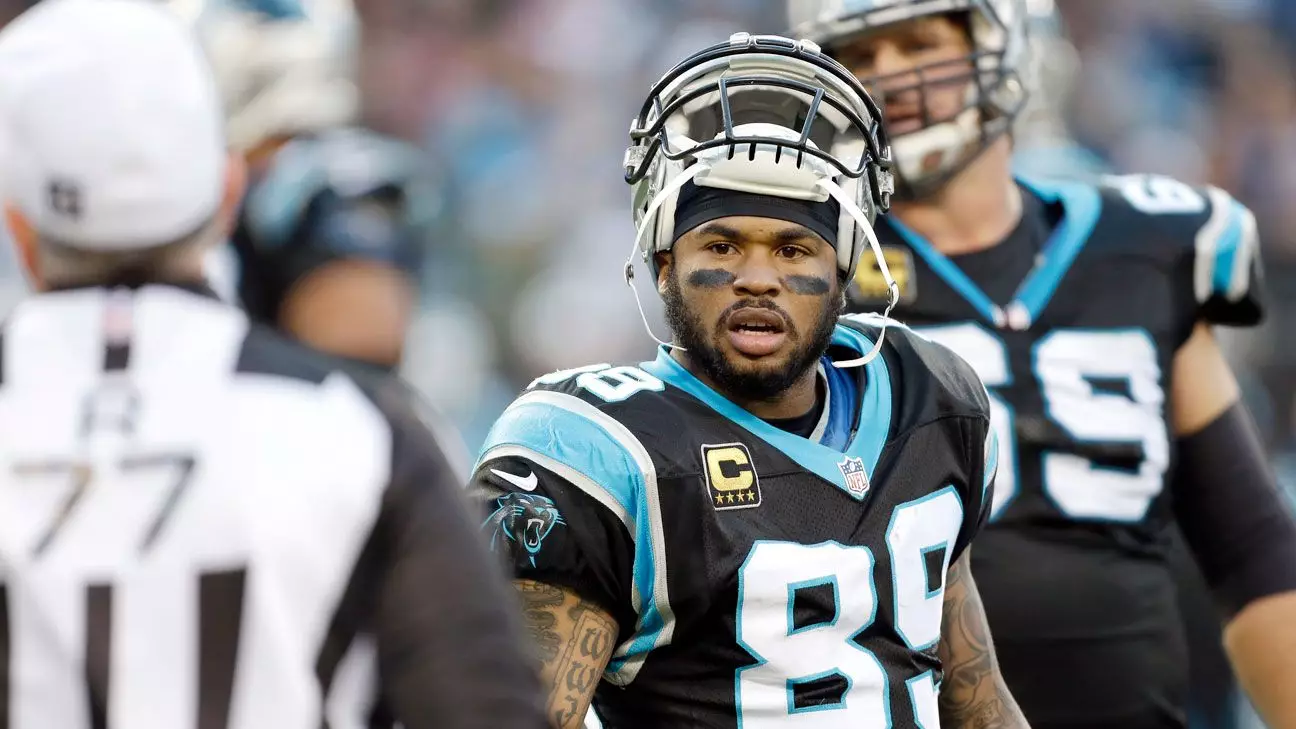The world of professional sports is often rife with tension, rivalries, and conflicting narratives that shape not just players’ legacies but also the perception of entire franchises. A recent spat between former Carolina Panthers stars Steve Smith Sr. and Cam Newton highlights this reality. Both players are prominent figures in Carolina’s history, but their perspectives on the team’s past and the nuances behind it have sparked a wider conversation about accountability and teamwork in the sporting arena. The friction ignited when Newton made comments attributing the Panthers’ poor performance before his arrival in 2011 to a “loser” mentality within the locker room. Smith, who played a pivotal role during those challenging years, offered a defiant rebuttal, sharpening the focus on what it means to criticize teammates, especially after having walked the same field together.
During an appearance on a podcast, Cam Newton expressed his views on the unique pressures that come with being a quarterback, particularly when he shared insights about the expectations placed on potential first-round picks. He emphasized the pivotal role of a quarterback in changing a team’s fortunes, claiming that when he entered the Panthers’ camp as the number one pick, he inherited a culture devoid of winning spirit. His comments imply that the previous players lacked the discipline and mentality needed to succeed, reinforcing his own narrative of a transformative arrival. While he may be reflecting on his experiences, the blunt label of “losers” raises significant questions about the responsibility athletes hold towards their teammates, especially regarding their shared struggles.
Steve Smith, an iconic wide receiver and current NFL analyst, reacted strongly to Newton’s statements. His quick counterattacks demonstrate both his fierce loyalty to his former teammates and his willingness to confront any disparagement they might face. By expressing disappointment in Newton’s remarks, Smith elevates the dialogue from personal grievances to a broader discussion about respect and dignity in sports. Smith’s assertion that calling his former peers “losers” is not just a critique but a disrespect that undermines the essence of teamwork draws attention to the necessity of solidarity among athletes, irrespective of their differing career trajectories.
The complexity of the Carolina Panthers’ evolution further complicates the narrative between Smith and Newton. While Newton indeed played a vital role in leading the Panthers to greater heights, including an MVP season and a Super Bowl appearance, it can’t be overlooked that Smith was already a significant part of the team’s fabric. His contributions, although affected by inconsistencies at the quarterback position during his career, paved the way for future success stories, including Newton’s arrival. It is essential to recognize that both players’ experiences in Carolina reflect moments of triumph and adversity that shaped their identities within the sport. Therefore, a simplistic view that pits them against one another ignores the deeper narratives of evolution and adaptability in a franchise that has experienced both highs and lows.
This incident not only showcases the individual perspectives of two celebrated athletes but also opens up a dialogue regarding accountability and personal growth within a team setting. Athletes often grow and evolve in their understanding of leadership and performance over time. What may seem like a boastful critique in hindsight might stem from a deeply personal experience of trying to redefine a winning culture. Conversely, the backlash against such statements underscores the need for sensitivity to the experiences of those who have endured the struggles that any franchise faces as it transitions through its phases.
Ultimately, the exchange between Steve Smith Sr. and Cam Newton should serve as a reminder of the weight words carry. In the competitive world of professional sports, where team cohesion is crucial for success, leaders must navigate their paths with respect for those who have shared the journey. As fans and analysts alike witness the unfolding drama, it becomes clear that every remark made by players has repercussions that extend beyond the locker room; they influence perceptions, shape legacies, and remind us all that what it truly means to “win” goes far beyond the final score. In fostering an environment that embraces constructive criticism while honoring the past, both players and teams can cultivate a culture of growth, respect, and lasting success.


Leave a Reply